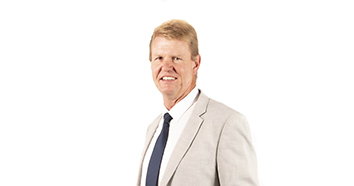Matla Mine 1
Relocating Following 42 years of operating at Matla Mine, Exxaro Resources’ executive decided to relocate the Mine 1 operation, which has been on care and maintenance since 2016, due to safety concerns. By Dineo Phoshoko
The Matla Mine 1 relocation project is a capital project of Eskom at Exxaro’s Matla Mine, which involves the construction of a new decline shaft to gain access to the remaining economical two-seam coal reserves. The relocation project also includes plans to supply Mine 1 with five complete suites of underground continuous mining equipment and equipment used to construct supporting infrastructure, interseams between Mine 2 and Mine 3, and a ventilation shaft to supply fresh air to Mine 3’s future production areas. The project commenced in August 2020 and is expected to be completed during the second half of 2023.
Resources and reserves
Speaking to Inside Mining magazine, Johan Meyer, executive head: Projects and Technology, Exxaro, explains that below the Matla Power Station lies a lot of coal that is accessed by three main shafts. From these shafts, Matla Mine is able to produce 10 million tonnes at a consistent quality of 19.5 CV (calorific value), which is required to feed the power station in order for it to produce the required energy output. Due to the history of the mine, it has become far to travel to the mining front. “The mining front at that point in time was around 25 km from the entrance of the current Mine 1. So, it’s best to move the shaft closer in proximity owing to this distance and obviously from a safety point of view,” Meyer says. In addition to addressing health and safety concerns, the relocation project will bring the shaft closer to mining activities, which is more efficient than travelling 25 km underground before arriving at the coal face. Meyer adds that the move of Mine 1 is closer to where the coal is, but still within the vicinity of the Matla Power Station. As such, the mine can continue to feed the power station from the conveyor systems below the ground.
PROJECT
Impact of relocation on employees
There are approximately 2 000 permanent employees working for Matla, as well as 2 500 contractors. “Without Mine 1 being established, it would have been difficult to keep the resources with only two shafts running,” says Meyer. The Mine 1 relocation project means that approximately 4 500 employees and contractors will continue to have jobs for an extended period – until 2040, when the resources become depleted. Meyer also notes the project will create employment for an additional 1 200 contractors required to work on it during its duration. This will further have a positive impact on the local Kriel economy. Meyer highlights that the project will also create hope in tough circumstances, especially with the Covid-19 pandemic that has impacted many people. “We have an exciting story of growth and sustainability for the Kriel community. I’m very excited about this project, not only for Exxaro and Eskom, but also for the country.”
Financing and Covid-19
As a joint capital project between Eskom and Exxaro’s Matla Mine, the supply agreement sees Eskom providing the capital that has already been released to build the mine. The collective move for the mine, box cut, surface infrastructure, conveyors, ventilation shaft and additional five sections of mining equipment for Mine 1 will cost around R3.5 billion.
In terms of Covid-19, Meyer mentions that nobody anticipated that contractors would be required to wear masks, have PPE and socially distance when Exxaro initially tendered for the project. He adds that Exxaro employees were among the essential services workers throughout the various lockdown levels, as the company supplies coal to Eskom. It was during this time that everybody familiarised themselves with Covid-19 regulations.
“We are working with the Minerals Council South Africa and Exxaro Projects, as well as the mine, to implement all the regulations of social distancing and PPE. We have compliance officers to make sure that we wear masks, etc.” Undoubtedly, Covid-19 has had a significant impact on the project and has created additional costs. While the impact is being carefully managed, Meyer maintains that the pandemic will not affect the implementation of the project. “With this pandemic, we have to move forward as an economy and [together] as a nation. We will implement projects and continue mining as best we can to support Eskom to keep the lights on in South Africa,” he says.
“There are a lot of stakeholders working together to make this a success.” They include the unions, Kriel community, Department of Mineral Resources and Energy, the construction industry and internal Exxaro stakeholders. Meyer concludes that this project is a success story about building hope – especially during the Covid-19 pandemic and amid many economic challenges.
Also read more on page 29-30 here: https://issuu.com/glen.t/docs/insideminingnov_2020
